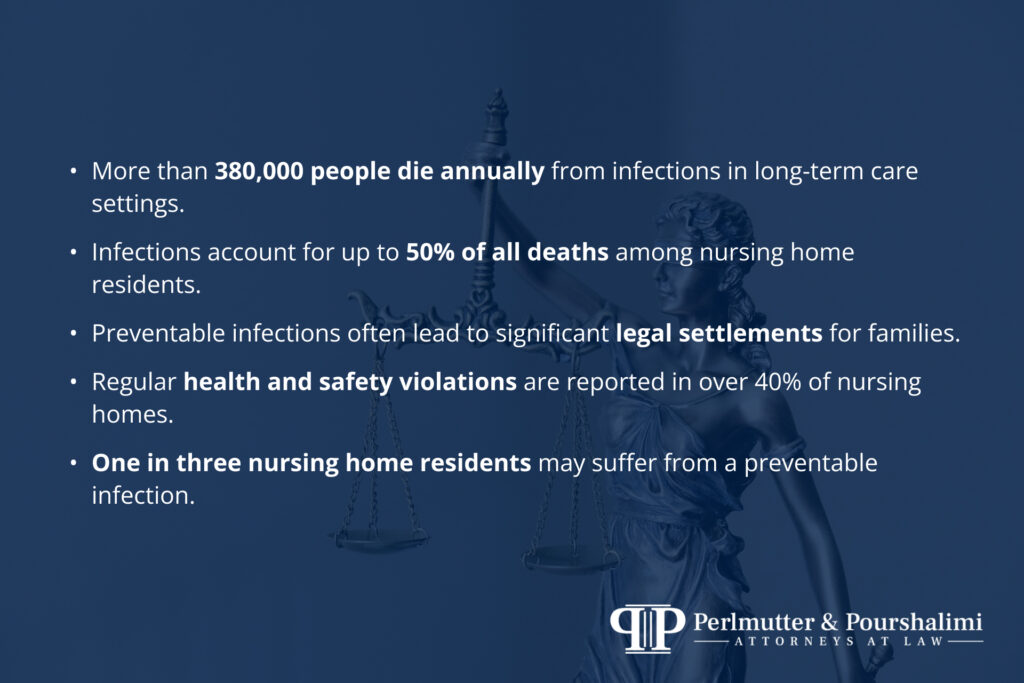Infections in elderly care settings can indicate serious neglect and inadequate care. These infections can rapidly deteriorate the health of vulnerable seniors and may even be life-threatening. At P&P Law Firm, we are committed to advocating for the rights and health of the elderly who may be suffering due to preventable infections arising from neglectful conditions.
Infections are a common and serious problem in elder care facilities. Due to their weakened immune systems, the elderly are particularly susceptible to infections, which should be preventable with proper care and hygiene practices. Neglect, whether from inadequate staffing, poor hygiene practices, or failure to administer medication properly, can lead to severe and sometimes fatal infections.
Common infections in these settings include:
The impact of infections on elderly individuals can be devastating:
Elderly residents and their families have legal rights to expect a standard of care that prevents infections. When these standards are not met, P&P Law Firm helps clients hold negligent parties accountable through legal action, ensuring that rights are protected and compensation is sought for harm caused.
Our expertise and dedication to elder rights make P&P Law Firm a trusted ally in the fight against elder abuse and infections.
If you suspect that your loved one is suffering from infections as a result of elder abuse, do not hesitate to reach out to Perlmutter & Pourshalimi to conduct an investigation on your behalf.

What are the signs of a serious infection I should look for?
How does P&P Law Firm prove negligence in infection cases?
What compensation is available for infection-related cases?
What steps should I take if I suspect neglect is causing infections?
How quickly should I act if I suspect an infection from neglect?
If you believe that an elderly family member is suffering from infections due to neglect, contact P&P Law Firm without delay. We offer free consultations to assess your case and provide immediate legal assistance. Contact us at 310-295-2236 for a free consultation.
Protect your loved ones from preventable infections by ensuring they receive the care they deserve. Contact P&P Law Firm today to hold negligent parties accountable and to safeguard the well-being of the elderly.